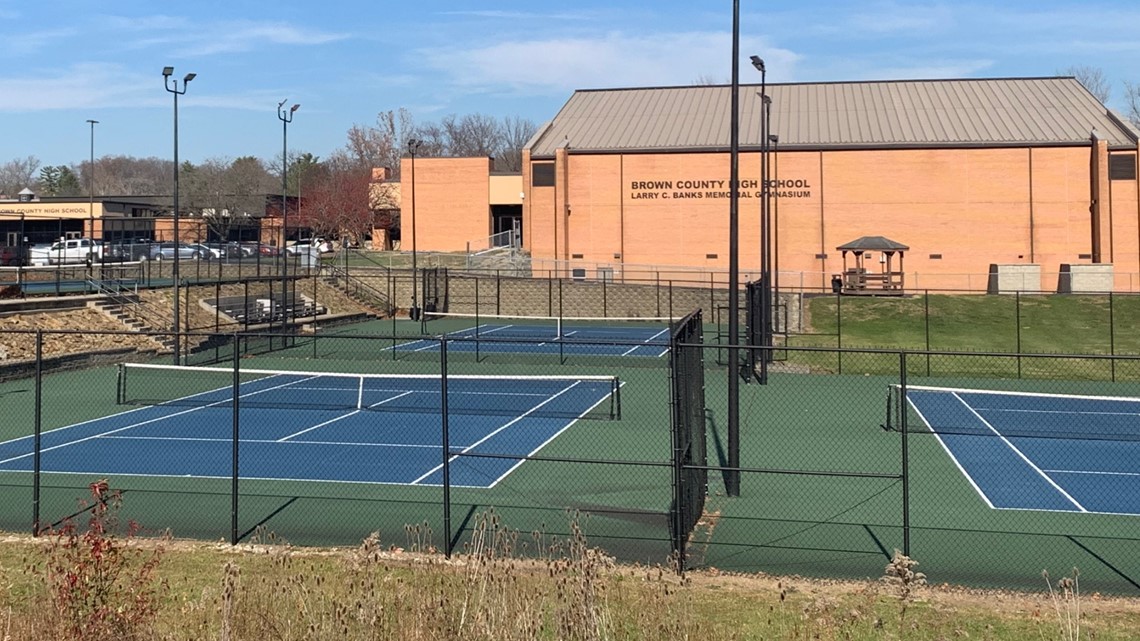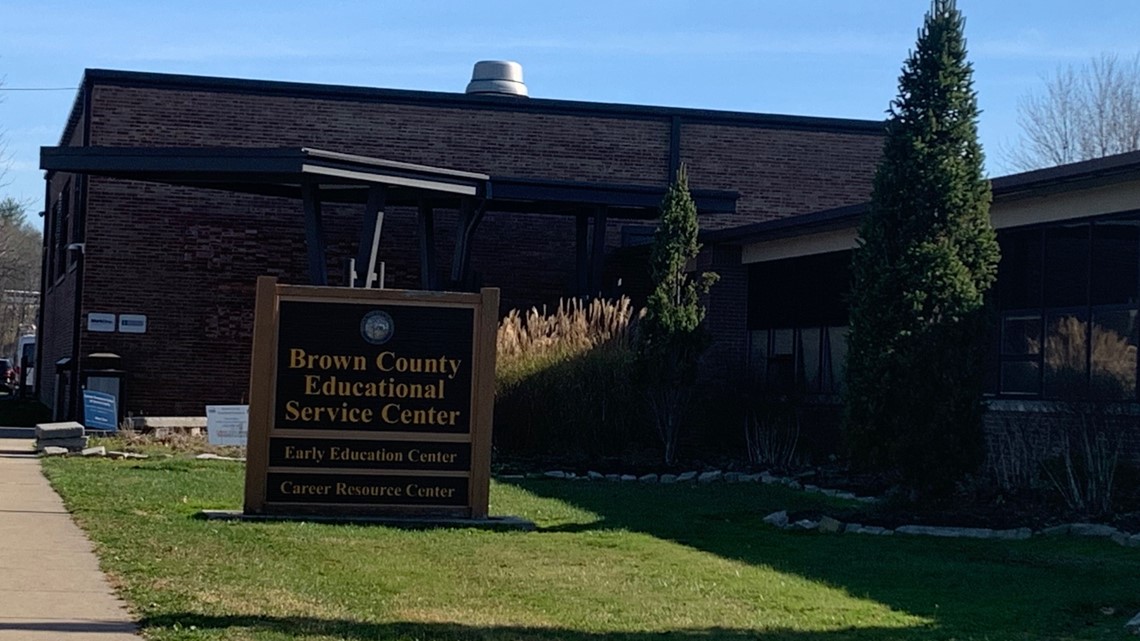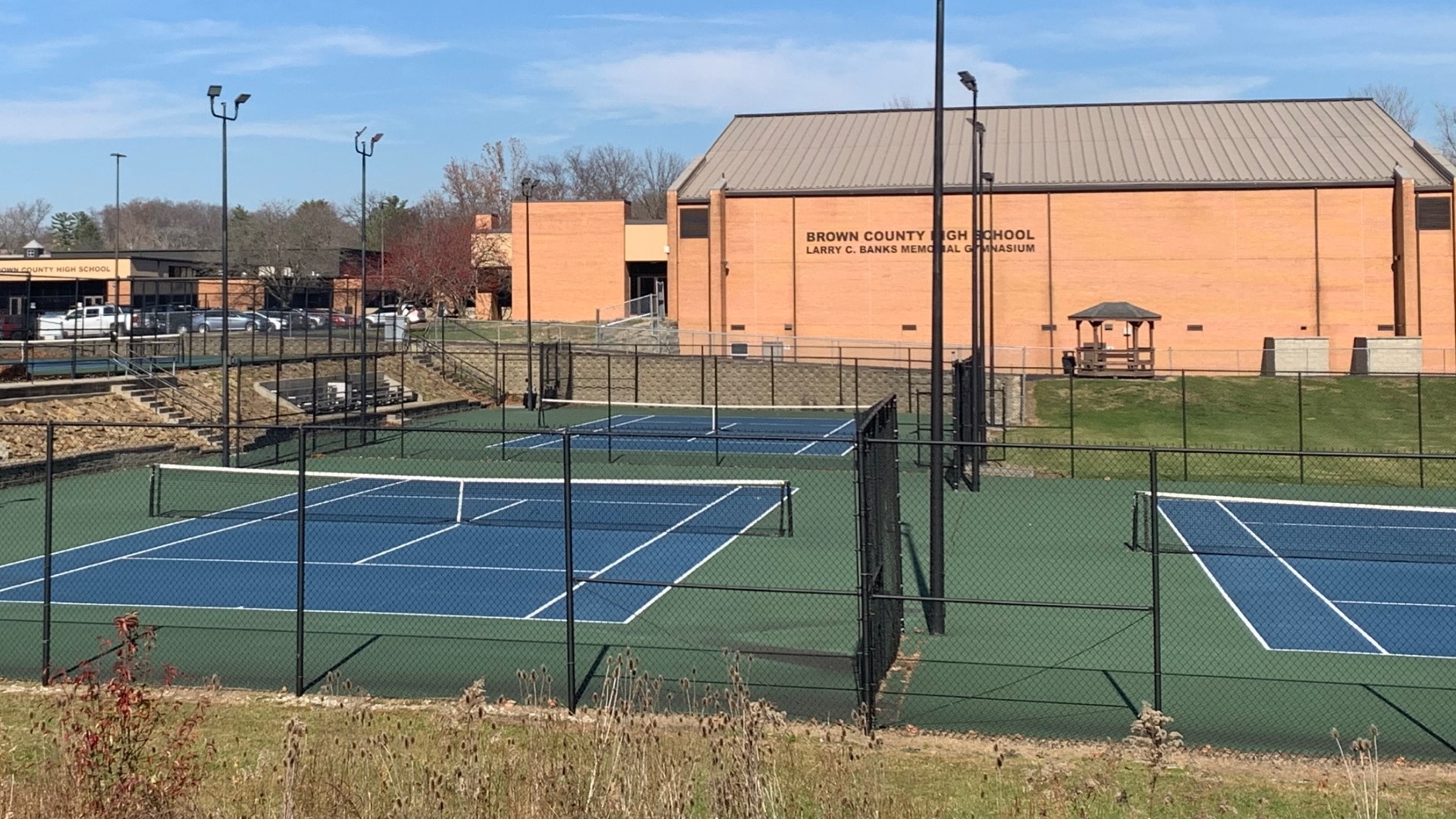NASHVILLE, Ind. — Eight Indiana school districts had issues on the ballot Tuesday and voters in three of those communities rejected referendums to support their schools.
In Brown County, school leaders warned of major cuts if the levy failed. Voters narrowly rejected the referendum by 333 votes. Now parents and school leaders are worried about what's next.
With two girls in Brown County schools, Kara Hammes is emotional about Election Day.
“It doesn’t feel great today," Hammes said. "It just makes me worry. This community we chose to move to, that we love so much, if they don’t support kids and don’t support the future, like, what does that really look like?"
The referendum failed despite dire warnings from the district about potential consequences, including wage freezes for staff, bigger class sizes for students and cuts to athletics, academics and the arts.
“I grew up in a small town in Ohio and we had something similar happen in high school like where athletics got cut and so I know what that does," Hammes said, stopping to wipe away tears. "I know how it feels to feel like your community doesn’t care.”


Alyssa Stanley is a parent and has been a teacher in Brown County for 17 years. Tuesday's results impact her family, her students and her job.
“I cried. It felt like a death. It did. It felt like getting this shocking news," Stanley said. "I didn’t foresee this not passing because I really thought they came through last time, they’ll come through again.”
Brown County voters were asked to renew a referendum that they approved back in 2016, a $15.1 million referendum that expires next year.
The ballot measure also asked taxpayers for additional money to fund early childhood and career center programs.
The cost to the average homeowner? A little over $3 a month.
Supporters say inflation may have played a role in the referendum's failure.
Getting out the word to homeowners can be more difficult in mostly rural Brown County, too. But supporters and school leaders fear some of the reasons it failed had nothing to do with money at all.


In a statement to 13News, Brown County Superintendent Emily Tracy said:
"The outcome of the operating referendum for Brown County Schools is disheartening. It was an extremely close vote and we appreciate everyone who came out to support our educators. I believe the language on the ballot is confusing and misleading for voters and it is our effort to continue to educate and inform our community.
For Brown County Schools, we have one year remaining on our current operating referendum before it expires. We will get back out there and do what we need to do moving forward.
I want to thank our incredible educators and entire school community for their efforts with the referendum. It is each one of them that champions our students daily. We will continue to serve and lead across Brown County to ensure we continue building out World Class Opportunities that foster Small School Relationships, ultimately leaving a Lifelong Impact for our students.
Again, I want to sincerely thank those who personally invested time and resources and came out to support Brown County Schools."
Last year, Indiana lawmakers did make a change in how questions are worded for schools on the ballot.
"Since we already had an operating referendum for eight cents and the referendum was asking for 12, the question had to read we were asking for 33% more," Stanley said. "But I think it read so that if you weren’t understanding the situation, it read in such a way that your property taxes might be increasing by 33%."
“It was really confusing," Hammes agreed, "and it almost makes it sound like all of your property taxes are going to go up by 30-plus percent and that’s not reality, but that’s the way it reads."
“It was very misleading, but it was required by the state that it had to be written that way," Stanley added.
What's next for the school district?
Tracy said they will seek another referendum in 2023, before the current one expires.
If that fails, major cuts are likely.
Parent supporters say they plan to push for passage again and educate voters more on how the ballot reads, all to make sure their kids get the kind of school experience they expect.
"My girls, they saw me working on it," Hammes said. "They saw the yard signs and they were like, 'Well, what will happen if this doesn’t pass? Um, you know we want to still have fun things in school, we like our teachers!' So we’ll get back on it and try and do better next time.”

